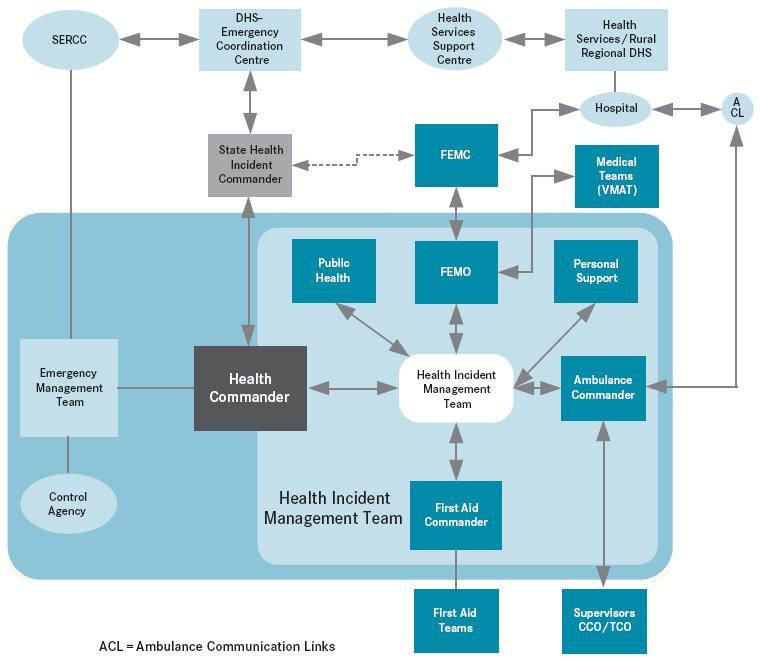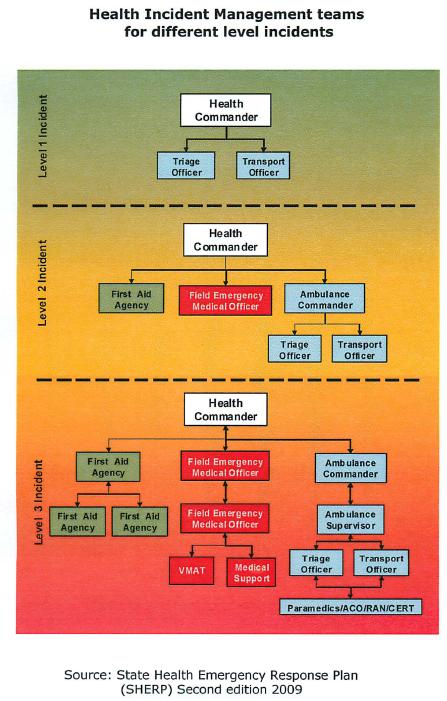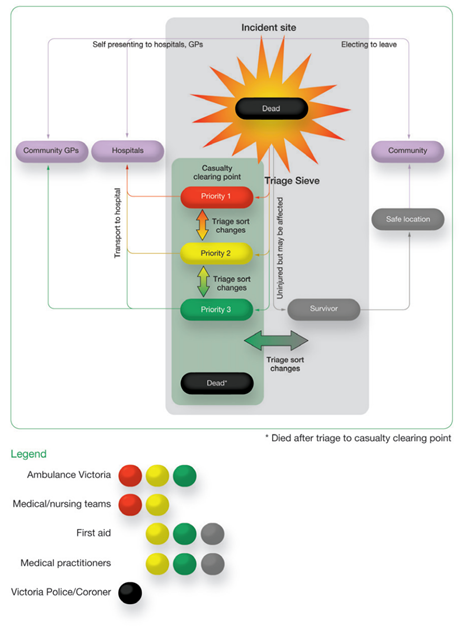Field Emergency Medical Coordinator (FEMC):
• Coordinate additional FEMO resources (including VMATs) if required
• Identify and liaise with casualty receiving hospitals
• Provide support for in-field FEMO personnel
• Liaise with other health agencies
Health Commander Ambulance
Health and Human Services Emergency Coordination Centre (HHS-ECC)
Victorian Health Emergency Coordination (VHEC)
The FEMC will usually be based at the Ambulance Emergency Operations Centre.
Field Emergency Medical Officer (FEMO):
• Provides advanced medical and clinical advice to ambulance services
• Provides advanced medical care to patients
• Liaises with the Health Commander to determine the appropriate casualty receiving hospital(s)
• Assesses the need for, activates (through the FEMC) and manages VMAT (Victorian Medical Assistance Teams)
• Refers casualties to alternative care options (such as GPs)
• Manages health and medical volunteers
The FEMO will usually be based near the scene of the disaster. More than one FEMO may be deployed for large, protracted, or multi-site incidents.

Health Incident Management Team
with the Emergency Management Team

FEMO = Field Emergency Medical Officer
FEMC = Field Emergency Medical Coordinator
Taken from State Health Emergency Response Plan
- DHS: Emergency management Branch - March 2009


Scene Management
Source: SHERP 3rd Edition 2013
FEMOP - SEMP Health Emergencies Sub-Plan
P.O. Box 2900, Fitzroy VIC 3065
3rd Floor, 100 Victoria Parade
East Melbourne, VIC 3002
Australia
Email: FEMO.Program@svha.org.au
Phone: +61 3 9231 3200 All Hours
Fax: +61 3 9231 3909
Current employment opportunities/vacancies:
Ararat - FEMO
Hamilton - Deputy-FEMO
Horsham - FEMO
Mildura - FEMO
Seymour - Deputy-FEMO
and
Wangaratta - FEMO
Warragul - FEMO
Job Description – Field Emergency Medical Officer – Regional/Rural
Job Description – Deputy Field Emergency Medical Officer – Regional/Rural